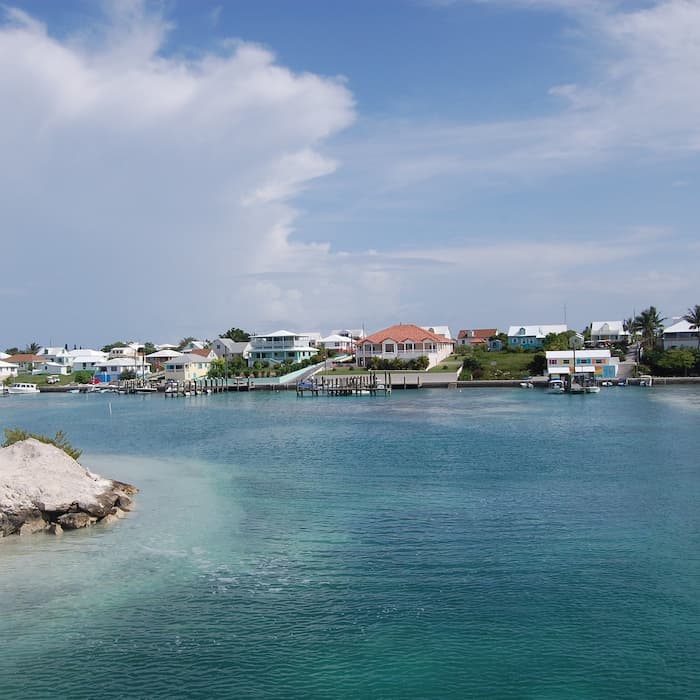Offshore
The Bahamas' Push For Climate Justice, Tapping Digital Assets Growth Story

The Caribbean jurisdiction has been through its fair share of challenges. Today, the international financial centre says it is very much on the front foot in areas ranging from climate finance, digital assets, fintech and evolving forms of banking.
The Bahamas is working hard to resolve issues ranging from “climate justice” to achieving fairness over how major countries try to enforce tax rules on the Caribbean jurisdiction.
As told to WealthBriefing by senior industry figures in interviews and at a conference held in London, The Bahamas is very much on the front foot, making an impact in areas such as digital assets and Central Bank Digital Currencies. The conference was arranged by the Bahamas Financial Services Board, in conjunction with this publication.
Christina Rolle, executive director at the Securities Commission of The Bahamas, spoke about the updated form of the Digital Assets and Registered Exchanges (DARE) Bill, which is designed to keep pace with unfolding technology and to learn lessons from the bankruptcy of the FTX crypto-exchange in late 2022. (FTX was headquartered in The Bahamas.)
The Bahamas is more concerned with the capital markets side of regulation, rather than being caught up in the specifics of digital assets' technologies, Rolle told the conference.
“We want to be sure that digital assets fit into the existing legal framework, and we prefer a little more certainty,” Rolle said. “We knew we would have to review legislation about a year ago. FTX represented a purging of the space, and everybody knew that it [new legislation] was going to take place.”
Cryptocurrencies and digital assets are becoming more institutionalised, and maturing, which means that new regulatory approaches are necessary, Rolle said.
The new DARE legislation provides for a wider range of activities that can be licensed, such as digital assets advice, Rolle said. The new legislation also makes it clear that for the purposes of stablecoins, the “coin” must not be an algorithmic entity, but one connected to a real-world asset, Rolle said.
As financial regulators, Rolle said The Bahamas’ authorities are “tech-neutral” – the specific nature of the technology is not the key, but the end result, in terms of how digital assets affect commerce, is.
Asked how The Bahamas sees itself as a jurisdiction for digital assets, Rolle said it will be a place for companies licensed in one country – which don’t have licenses elsewhere – but need access to countries that lack a local licensing regime.
Speaking alongside Rolle was John Rolle, Governor of the Central Bank of The Bahamas, who was asked about the jurisdiction’s approach to central bank digital currencies, or CBDCs.
At present, there is mostly a domestic focus in The Bahamas on these currencies, but there is potential for them to develop in a cross-border sense. “This [topic] is generating lots of questions from Africa, Latin America and the Caribbean,” Rolle said. "More enabling infrastructure around CBDCs needs to be in place, and they need to fit with a drive to make the financial system in The Bahamas more inclusive."
In addition to a digital footprint, The Bahamas is taking a leading role in advocating for global responsibility and equality. The Bahamas isn’t afraid of challenging moves by that 38-member “club” of large, industrialised nations, the Organization for Economic Co-operation and Development, over tax and other topics. Instead, The Bahamas wants voices from a wider circle of nations, such as those in the “Global South,” to gain more of a hearing on tax, compliance and regulation. It gives an indication of how The Bahamas intends to position itself in coming years. (The Global South is a term used to describe regions outside Europe and North America, including Africa, Asia, Latin America, and Oceania.)
At present, there is a divergence of views on issues such as tax standardisation and regulations between OECD countries and those in the Global South, Ryan Pinder, attorney general of The Bahamas, told the conference.
A problem with OECD demands for tax information exchange pacts, for example, is that it operates as a one-way channel because The Bahamas doesn’t have an income tax, Pinder said.
“My view is that it is going to be very difficult to get consensus over the board on this [tax] issue,” Pinder said.
Pinder told this news service that The Bahamas wants to push against the OECD and other blocs in, he said, “unilaterally” setting lists of jurisdictions deemed to fall short in some ways. Instead, he said, “we want agreement on a dispute resolution process and want a ban on unilateral blacklisting.” A problem at present is that if a bloc puts a country on such a list, correspondent banking services are hit, Pinder said.
Another point of contention is deductions for capital spending. “These are the kind of things that The Bahamas likes to ask as to how it differentiates itself in this framework?” said Pinder.
A topic that exercises The Bahamas, which has suffered hurricanes and is vulnerable to rising sea levels, is climate change, and the need to protect its tourist sector, Pinder said.
“The Bahamas has taken on a significant advocacy role in campaigning in the [International Court of Justice]. We are taking very active roles on climate justice and want to make sure the polluter pays,” he said.
The ICJ has the power to hold countries under its auspices to account. The Bahamas has already filed a case in support of its opinions to the ICJ in The Hague, he said. Polluters are damaging The Bahamas’ right to earn a living from areas such as tourism, Pinder said. The situation becomes particularly difficult when The Bahamas and other offshore centres are attacked by onshore jurisdictions over tax.